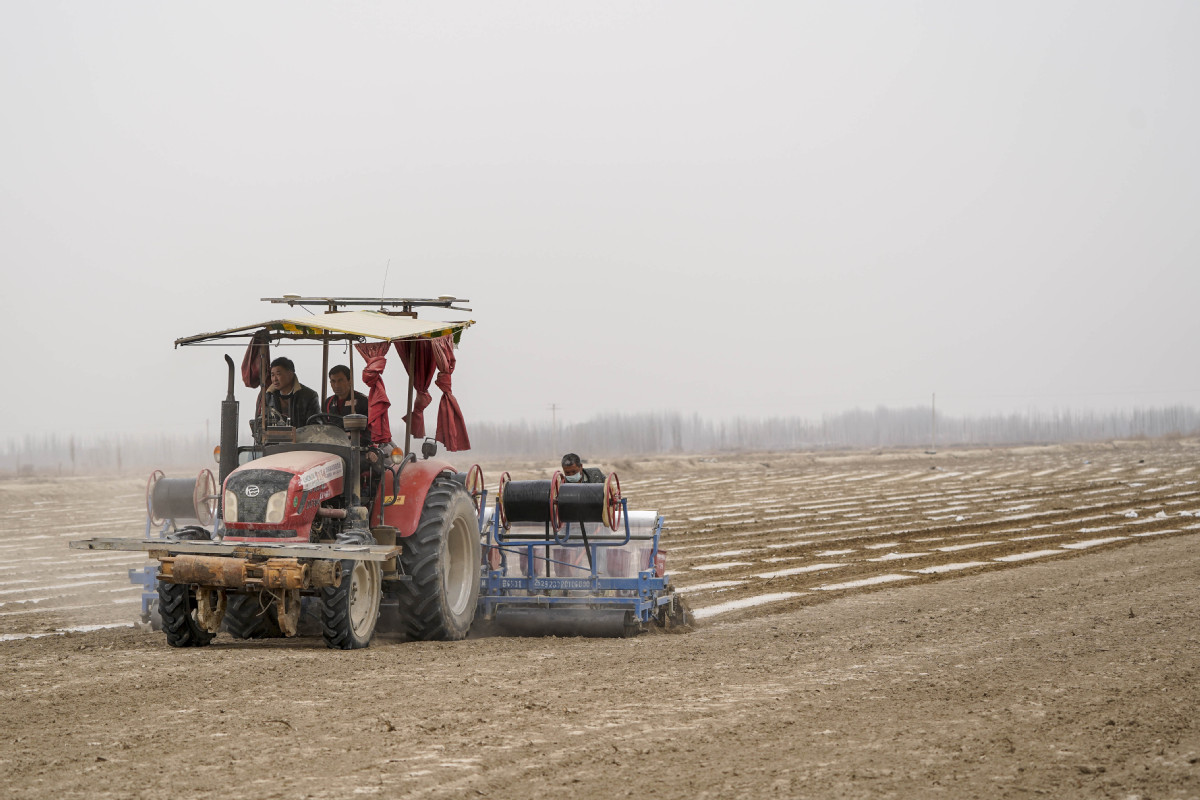Mechanization of Xinjiang's cotton sector approaches 90%

A total of 2 million hectares of cotton farmland in the Xinjiang Uygur autonomous region will be harvested by machinery rather than by hand, or 106,666 hectares more than last year, according to the region's Department of Agriculture and Rural Affairs.
The increase is expected to raise the mechanization rate of cotton production to 88 percent this year, as the region continues to promote mechanization in the whole process of agricultural production, the department said recently.
In Shaya county of Aksu prefecture, many tractors can be seen busily planting cotton fields, instead of lots of farmers sowing by hand, as spring temperatures rise.
Aksu, a major cotton-growing area in southern Xinjiang, saw cotton output of more than 1 million metric tons in 2020, making up about one-sixth of the country's total, according to the local government.
A specialized agricultural machinery cooperative was founded in 2017 in Shaya to provide agricultural machinery and technology to cotton farmers, said Ma Zhanming, head of the cooperative. The cooperative can provide mechanization service during the whole process, from spring sowing to harvest.
Farmers can pay 1,650 yuan ($250) per hectare for the mechanization service, which includes plowing, planting and harvesting.
In the past, for instance, it took at least 30 workers two months to harvest 20 hectares of cotton farmland, but now a harvesting machine can finish the harvest work on 20 hectares within one day, Ma said. And a harvesting machine needs only two drivers.
The cooperative will manage 760 hectares of cotton farmland for 400 families this year.
There were 132,000 hectares of farmland planted with cotton in Shaya in 2020, according to Li Yang, deputy director of the county's Bureau of Agriculture and Rural Affairs. Over 110,000 hectares were harvested by machines, accounting for 85 percent of all the farmland.
With the continuous advancement of land leveling and the construction of intensive and high-standard farmland, complete mechanization is expected to be seen in the future, he said.
In the county, there are over 54,000 agricultural machines and 78 agricultural machinery cooperatives to help farmers increase efficiency and improve yields.
Farmers in other areas also benefited from advanced farming technologies and facilities.
Mijit Yimit, a cotton grower in Kuqa county, said he received income of 150,000 yuan last year from his 20 hectares of cotton fields.
I have planted cotton for 18 years, he said. In the past, I needed to pay about 80,000 yuan each season to hire workers to help harvest, but now I need only 30,000 yuan.
I have seen more application of machines for cotton planting, such as spreading fertilizers, spraying herbicides and pesticides, as well as drip irrigation, especially in recent years, he said. The technologies and facilities also help improve the quality of cotton, he said.
Xinjiang is also striving to develop its intelligent agriculture, including promoting the Beidou satellite navigation system in driverless tractors and constructing the comprehensive data service system, local government said.




